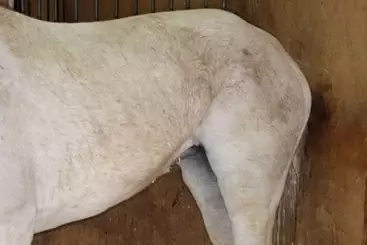Recent research carried out at the Moredun Institute and University of Edinburgh have identified a potential cause of Equine Grass Sickness (EGS) - neurotoxic phospholipase A2 (nPLA2).
This toxin is similar to the toxin found in some snake, spider and fish venoms. The precise source of the toxin is uncertain – it could be from bacteria that horses ingest from pasture or it might be produced by bacteria within the horses’ gastrointestinal tract, for example.
This exciting discovery will hopefully lead the way to finding treatments or preventative strategies for the disease, although this will likely take many years of further research.
Signs of grass sickness can include:
- Weight loss
- Muscle tremors
- Difficulty swallowing
- tucked up appearance
Don’t hesitate to contact BELL EQUINE if you spot these signs as equine grass sickness can deteriorate incredibly quickly. Call us on 01622 813700 if you have any concerns.
For further information on Equine Grass Sickness, see our useful info section on EGS HERE which has some practical advice and some preventative management strategies, along with some useful links, including to the Moredun Foundation.

